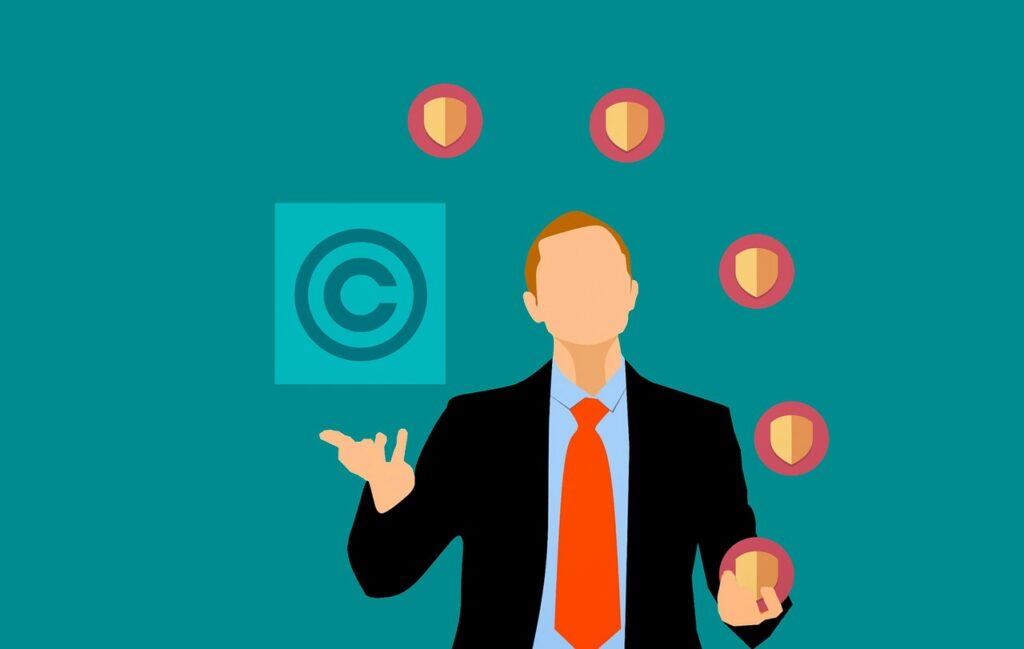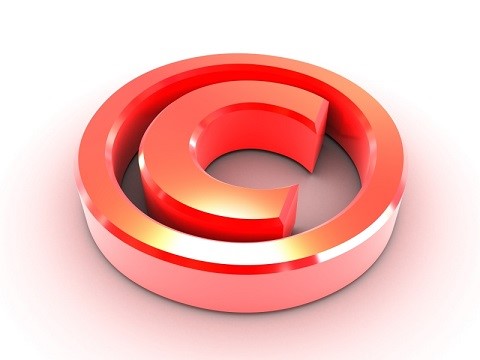
Protect Your Work with Copyright
In the world of creative expression, originality deserves protection. That’s where copyright comes in. This legal instrument safeguards your creations, granting you exclusive control over their use and distribution. Copyright covers a vast spectrum of creative endeavors, including literary works, music, artwork, plays, and films.1 The moment you breathe life into your work, copyright protection automatically kicks in, typically lasting for your lifetime plus 70 years.2
Unveiling the Copyright Mystery
Think of copyright as a shield defending the unique way you express an idea. Copyrights empower their owners to decide how their work is reproduced, distributed, displayed, performed, or even transformed into derivative works.3 Copyright protection is yours from the moment of creation, without any formal registration process.4 However, registering your work with the U.S. Copyright Office unlocks several advantages:
- A Public Seal of Ownership: Your copyright claim gets etched in a public record, serving as undeniable proof of your authorship.
- Federal Court Access: If someone infringes on your copyright, registering allows you to pursue legal action in federal court and is considered prima facie evidence in a court of law of the validity of the copyright if made before or within five years of publication.
- Enhanced Damages: Winning a copyright infringement lawsuit with a registered work might entitle you to statutory damages and attorney’s fees.5
Securing Your Creative Realm
There are two primary paths to securing copyright protection:
1. Publish with a Copyright Notice: This includes the copyright symbol ©, the publication year, and your name as the copyright holder.
2. U.S. Copyright Office Registration: To register with the U.S. Copyright Office, you must complete an application, submit the nonrefundable filing fee, and provide a non-returnable deposit (a copy or copies of the works being registered).6
Areas Beyond Copyright’s Reach
Copyright doesn’t extend to facts, mere ideas, systems, methods of operation, titles, slogans, or short phrases.7 Additionally, it doesn’t cover unoriginal works like blank forms, government documents, or those already in the public domain.8
The Enduring Legacy of Creativity
Generally, copyrighted work created after January 1, 1978, is protected for the author’s lifetime plus 70 years.9 For anonymous, pseudonymous or works made for hire, protection lasts for 120 years after creation or 95 years after publication, whichever comes first. 10
Unlocking the Benefits of Copyright
Copyright empowers you to hold the reins on how your work is used. You can sell, license, or even give away your copyright rights.11 Moreover, you have the legal grounds to take action against anyone who infringes upon your copyright.12
Safeguarding Your Creative Investment
If you suspect someone of infringing on your copyright, you can send them a cease-and-desist letter. If they persist, you have the option to file a lawsuit against the infringing party.
Remember:
If you suspect someone of infringing on your copyright, you can send them a cease-and-desist letter. If they persist, you have the option to file a lawsuit against the infringing party.
- Document your work: Keep drafts, sketches, emails, and anything else that chronicles your creative journey.
- Display the copyright notice: Include it on all published works.
- Consider registration: Registering with the U.S. Copyright Office strengthens your claim.
- Seek legal counsel: Consult an attorney for tailored advice on copyright law.
Disclaimer: This blog post is for informational purposes only and does not constitute legal advice. Please consult with an attorney for specific legal guidance on copyright law.
1Copyright.gov: Copyright in General,https://www.copyright.gov/help/faq/faq-general.html#:~:text=Copyright%2C%20a%20form%20of%20intellectual,%2C%20computer%20software%2C%20and%20architecture (last visited February 6, 2024).
2 Copyright.gov: How Long Does Copyright Protection Last?,https://www.copyright.gov/help/faq/faq-duration.html#:~:text=As%20a%20general%20rule%2C%20for,plus%20an%20additional%2070%20years (last visited February 6, 2024).
3Congressional Research Service: Copyright Law: An Introduction and Issues for Congress, https://crsreports.congress.gov/product/pdf/IF/IF12339#:~:text=Exclusive%20Rights%20of%20Copyright%20Owners,%2C%20sequel%2C%20or%20dramatization (last visited February 6, 2024).
4Copyright in General,https://www.copyright.gov/help/faq/faq-general.html#:~:text=Copyright%2C%20a%20form%20of%20intellectual,%2C%20computer%20software%2C%20and%20architecture (last visited February 6, 2024).
5 Id.
6Id.
7Id.
8Id.
9: How Long Does Copyright Protection Last?, https://www.copyright.gov/help/faq/faq-duration.html#:~:text=As%20a%20general%20rule%2C%20for,plus%20an%20additional%2070%20years (last visited February 6, 2024).
10Id.
11Copyright Law: An Introduction and Issues for Congress, https://crsreports.congress.gov/product/pdf/IF/IF12339#:~:text=Exclusive%20Rights%20of%20Copyright%20Owners,%2C%20sequel%2C%20or%20dramatization (last visited February 6, 2024).
12 Id.

